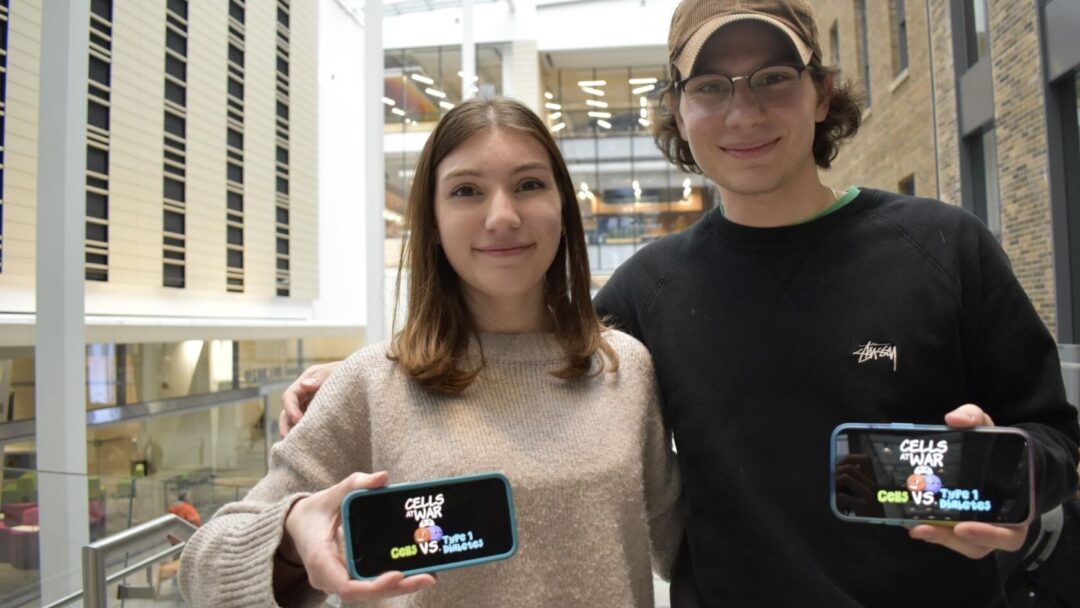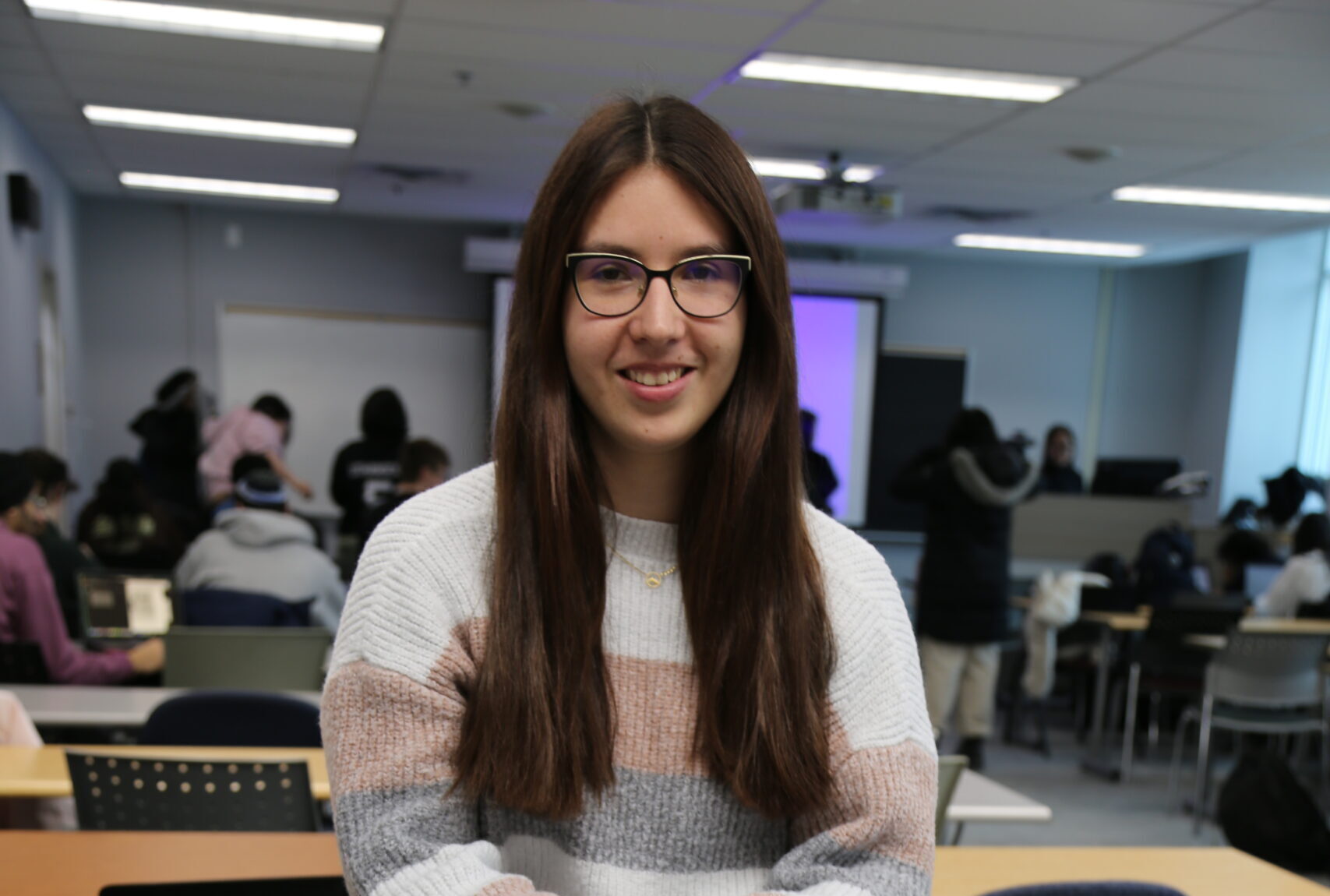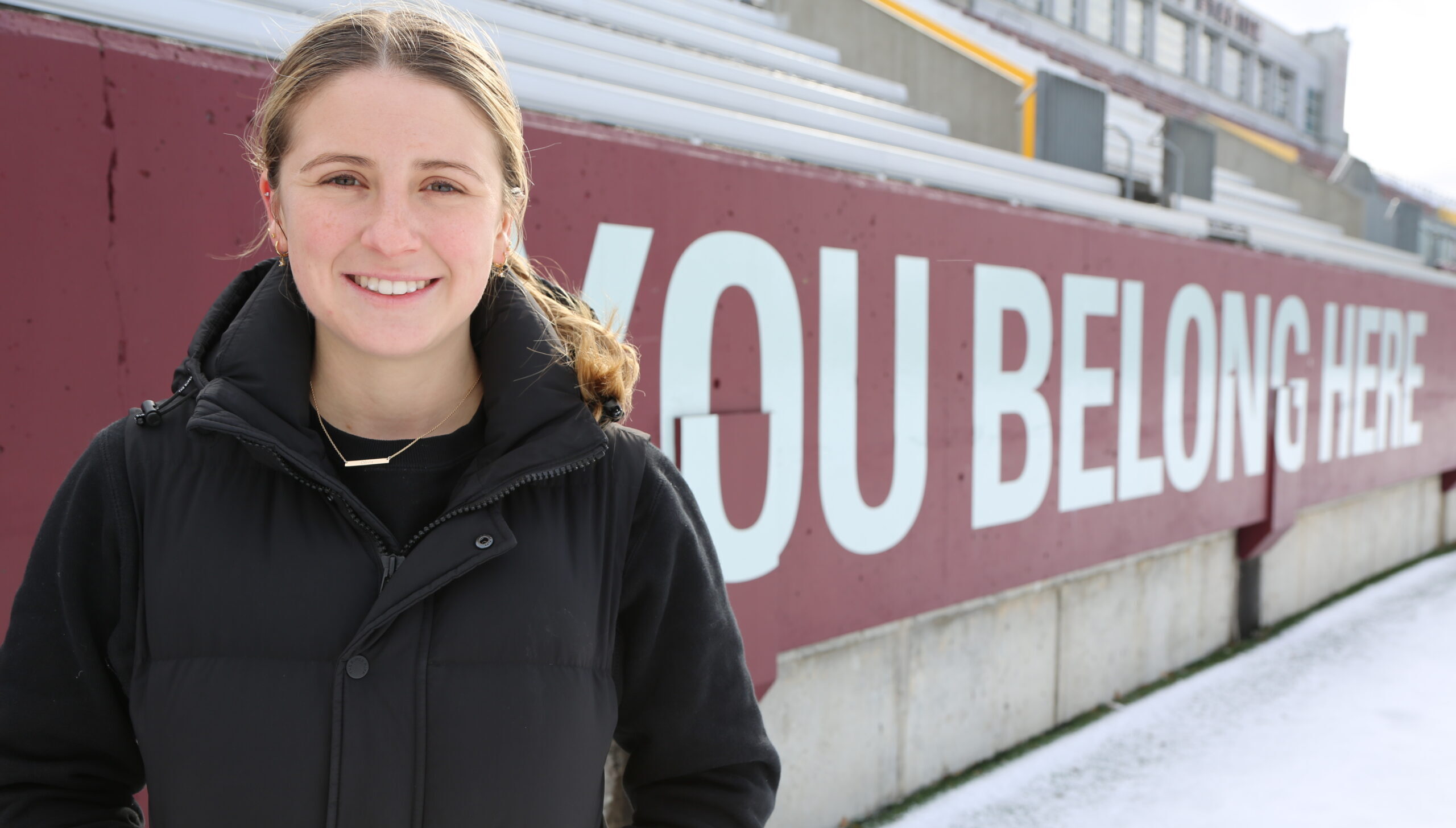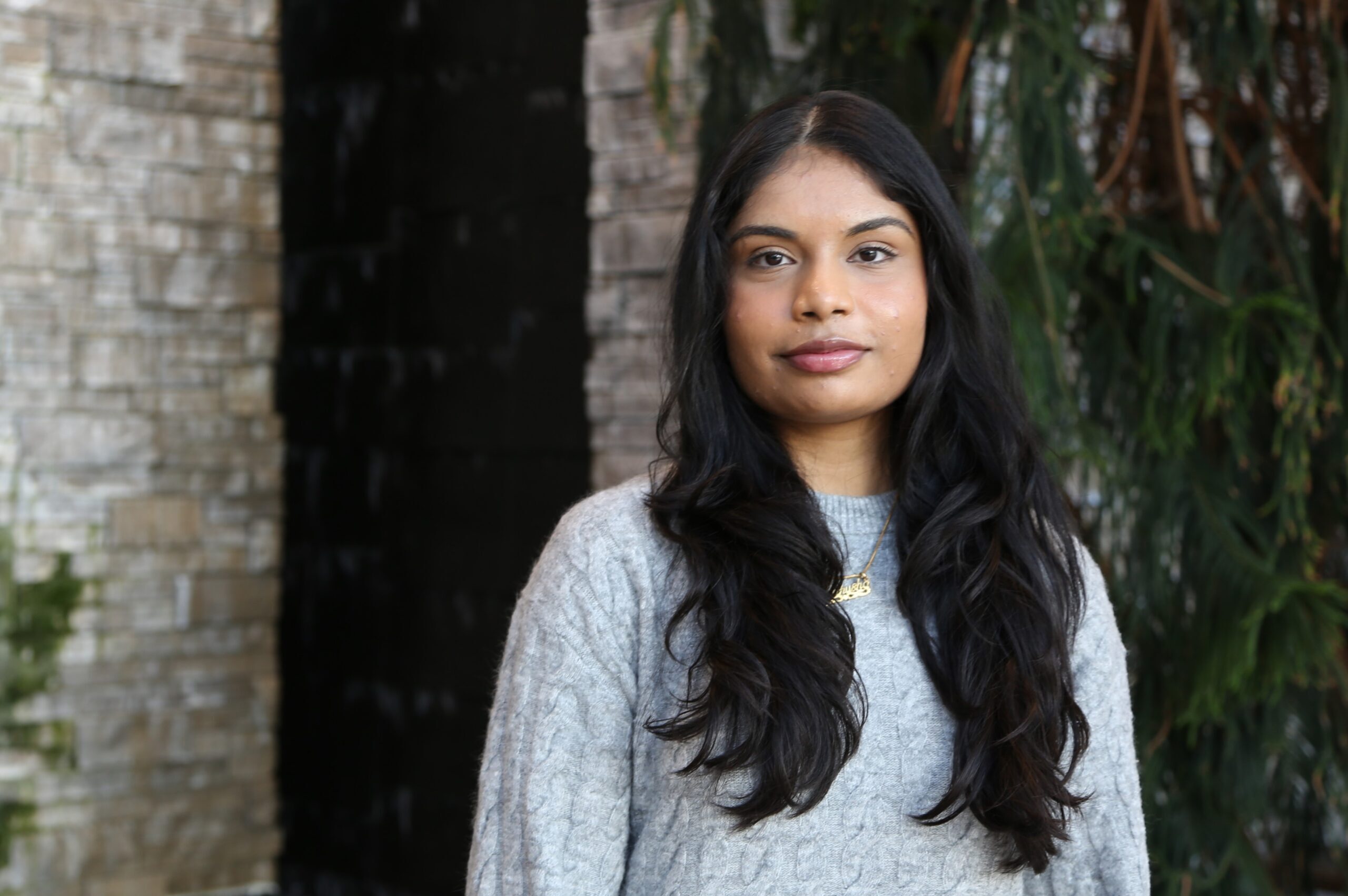Undergrads help build a game-based STEM learning universe

Bianca Flaim and Alexander Turco had no idea what they were getting themselves into three years ago. They now agree working on Cells at War is one of the best decisions they made during their time at McMaster.
The undergraduate biology students got an email in the summer of 2021 pitching a new curricular work-integrated learning project. Details were vague. Bianca remembers it was something about building a choose-your-own adventure game with George Brown College students. “I thought we’d make one pretty basic and slightly boring game that some students would play once during a tutorial and then never play again.”
Bianca sent in her resume and transcript even though she didn’t fully understand the project. Coming out of the pandemic, she’d missed out on lots of experiential learning opportunities. She thought this was her last best shot at having that kind of experience as an undergrad.
Alex, who was heading into his second year, also didn’t know what the project was about. But he loved playing video games and studying biology. Here was a chance to get paid to do both so he also applied.
They were among the first 15 students hired for what became the Cells at War project. They’ve been an integral part of the project team ever since. Cells at War is a game-based learning platform made up of a growing suite of biology-related games that appeal to a generation of students raised on Tomb Runner, Mario Kart, Fortnite and Minecraft.
The idea originated with Rosa da Silva, who was then an Associate Professor in the Department of Biology and is now the Faculty of Science’s Associate Dean of Undergraduate Studies. She’s taught Biology 1AO3 to thousands of students. Getting first-years excited about the structure, molecular composition and function of sub-cellular systems can be a tall order. Cells at War would offer a fun and familiar way for students to learn how different diseases affect cells and how those diseases can be treated, managed or defeated.
A conversation with Alice O’Carroll, Director of Science Career Development and Co-operative Education, led Rosa to project funding from CEWIL Canada and an introduction to Jean-Paul Amore, Program Coordinator, Game Art, Game Design and Concept Art for Entertainment at the George Brown College Centre for Arts, Design & Information Technology. That collaboration’s opened up a talent pipeline that’s kept the project team stocked with top college students with game design, art and programming expertise.
So far, 97 McMaster and George Brown students have joined Rosa and Jean-Paul’s STEM game-based learning universe. The project’s even brought in faculty and students from the University of Wollongong in Australia.
Bianca and Alex can’t quite get their heads around how much they’ve learned, what they’ve done and who they’ve met while working on the project.
“I never expected that I’d spend three years helping create a whole collection of games like what you’d find on the App Store,” says Bianca.
Alex and Bianca have had a hand in developing every game, including Cells vs. Pompe, Cells vs. Type 1 Diabetes, Physics Phood Phestival and Undead Orchestra. They’ve done it all, from literature reviews and onboarding new team members to conceptualizing games, explaining complex science topics to the design teams and fact-checking their work.
Even better than the calibre of games they’ve created are the friendships they’ve forged. “The team’s made up of such diverse and amazing people. We never would’ve met if it hadn’t been for this project,” says Bianca.
The Mac team’s worked with game designers, programmers, artists, engineers, physicists and musicians – not the usual crowd for an undergraduate biology student. “If you’d told me at the start of the project that I’d be overseeing game design processes, I wouldn’t have believed you,” says Alex. “The learning’s never stopped. I’ve shared my knowledge of biology while learning new things in entirely different fields from other team members.”
Launch days have been a highlight for both Alex and Bianca. The Mac and George Brown teams meet on campus to showcase their latest games and get real-time feedback from students. “Launch days have been a blast,” says Bianca. “After working tirelessly all term, we’re all really proud and excited to show off our hard work.”
The project’s been a confidence booster for both students. Bianca had zero programming or art experience, yet she was being counted on to lead a team of super-creative and talented George Brown students. “I was terrified to be a project lead. I was worried that I’d assign too many tasks, not give meaningful feedback and hold the team back.” Her fears were misplaced. “With time, I got the hang of things.” Bianca worked with the programmers and artists to come up with a way of getting the work done that best fit their team. “We made some huge changes to our game over the term. I’m so proud of the entire team.”
Bianca and Alex are also grateful for Rosa and Jean-Paul’s mentorship. “They truly believe in every student and constantly push us to put forward our best work. Rosa and JP helped us find our true potential,” says Bianca.
Alex says he’s been inspired by Rosa and Jean-Paul’s willingness to push the envelope, explore new and fresh ways of teaching and fully get behind collaborating with the student team. “It’s been such a privilege to work for two forward-thinking supervisors who truly believe in students and what we can do.”
The feeling’s mutual. Working with nearly 100 exceptional students from different disciplines has been the project’s greatest reward, says Rosa. “We’ve seen how much students have grown on this amazing journey together. We also get to see what these students do next and all the new directions they’re taking beyond their work with us. It’s incredibly exciting and humbling to have played a small part in their success.”
New directions are the near horizon for Bianca and Alex who’ll be graduating this spring and leaving the project. Alex is looking to study computational biology in grad school with a focus on cancer genomics. “Being part of Cells at War taught me the value of collaboration and showed me what it takes to lead a large research project.”
Bianca, who’s graduating this spring with a Bachelor of Applied Science in Human Behavior after completing a Bachelor of Science in Biology in 2022, wants to get involved in healthcare: she’s currently a clinical research project assistant at The Hospital for Sick Children and a cardiology research volunteer at St. Michael’s Hospital. She hopes to keep working on collaborative projects that bring together diverse groups of smart and talented people. “I’ve learned so much more than I ever thought I would about science communication, working on and leading a team and designing games. It’s been an incredible journey.”
And thanks to Cells at War, Bianca and Alex now know what to do when other vague, yet intriguing opportunities come their way throughout their careers: say yes.
Cells at War is funded in part by the Government of Canada’s Innovative Work-Integrated Learning Initiative and by CEWIL Canada’s iHUB.
StudentsRelated News
News Listing

Life Sciences student launches McMaster Teaching Assistant Volunteer program for Hamilton schools
Outreach, Students
6 days ago

A remarkable four-year run on and off the field for kinesiology student
Outreach, Students
6 days ago

Parent’s career change inspired Life Sciences student to become a driving force behind annual women in STEM conference
Outreach, Students
January 29, 2025
